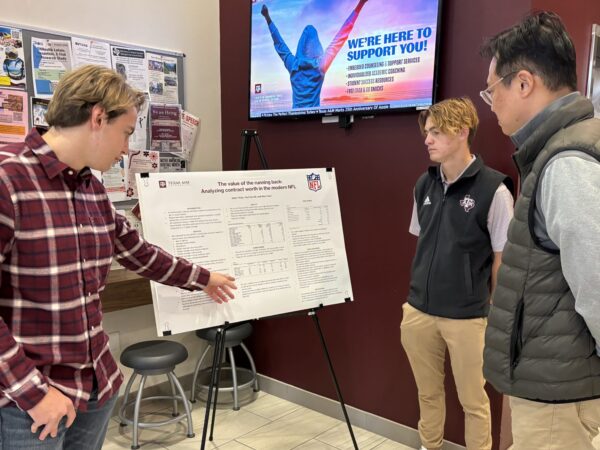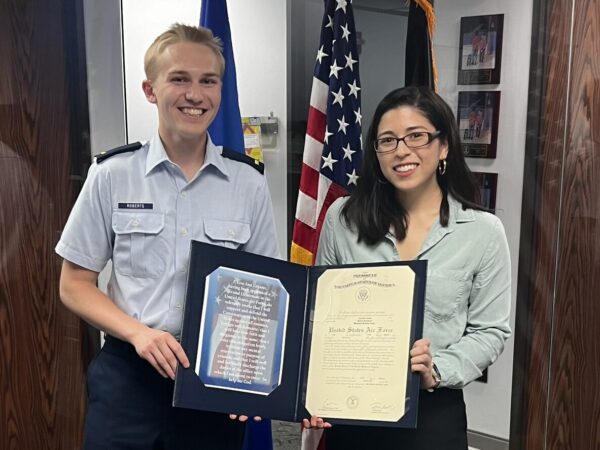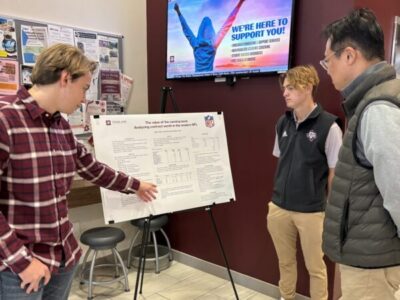
ADHD Research: From Child To Adult
More than six million children are diagnosed with attention deficit hyperactivity disorder, or ADHD. It is one of the most common neurodevelopmental disorders of childhood.
ADHD is also the most extensively studied mental health disorder. Since it was first described in 1902, ADHD has been surrounded by controversy based on the number of diagnoses and using medication to treat the disorder.
Dr. Cynthia Riccio is a professor of school psychology in the College of Education and Human Development. Her research touches on that controversy by looking at whether a child has ADHD or if their problems are related to something else.
Children with ADHD may have difficulties paying attention, controlling impulsive behaviors or be overly active. A diagnosis does not require all three symptoms. Each person diagnosed presents a different set of behaviors.
“Not everyone who is labeled ADHD is going to look the same. It’s more like you have the flu and you get a list of flu symptoms. You check off five but not everyone has the same five symptoms,” explained Riccio. “They have different problems, different presentations and they need different interventions.”
There is no identified single test for ADHD. In fact, many other disorders can have similar symptoms.
Inattention, failure to complete tasks, fidgeting, and even irritability also occur with other disorders like anxiety or depression,” added Riccio. “My question is – is the child not paying attention because he or she doesn’t understand what the person is telling them? Or, do they not understand because they can’t pay attention?”
If parents are concerned with their child’s behavior, Riccio suggests talking to teachers and school counselors. They can help determine if a comprehensive evaluation is needed or if behaviors can be addressed by modifications within the school.
“It’s important for parents to keep in mind that all children are individuals and some are more active and curious than others. A diagnosis or intervention is needed when the behaviors are at a level that results in impairment.”
ADHD Treatment Outcomes
The most promising ADHD research is in the area of intervention and long-term positive outcomes. For treatment, studies show the best approach combines behavioral programming with medication. In those studies, there is an 80 percent success rate.
Riccio’s concern is with the remaining 20 percent and others who are treated only with either behavioral programming or with medication.
“We have to figure out what else we can do. We need to teach them ways they can self-monitor. We need to help with their planning skills and help them to be able to execute and complete a project,” she said. “There has to be more direct instruction. We have to provide a checklist so they can help themselves.”
ADHD and Adults
According to Riccio, many students work on those skills with intervention planning before going to college. They learn what they need to do and what works best for them to meet the expectations. This gives them the ability to go to disability services at their university to figure out accommodations and modifications that can be made in the classroom.
Unfortunately, that is not always the case. Many leave high school and have no idea why they were receiving services or how to get help at their university. Parents are no longer there to make sure students make it to every counseling appointment or make it to class and do their homework.
“We have to find the additional supports that may be needed – either in terms of ‘coaching’ and instruction in self-monitoring and self-regulation or medication. It’s important to find ways to help students master the new challenges in the new environment.”
ADHD often lasts through college and into adulthood; although, for the majority, many of the more disruptive behaviors go away.
“We have more and more evidence that it does get better. For a majority of individuals with ADHD, they can learn and be successful. They can go on and get jobs and have families,” explained Riccio. “It may take them a little longer to get those self-regulation skills and to be able to control their own behavior, but they can still do it.”
About the Writer
Ashley is the Media Relations Coordinator and responsible for news coverage in the Department of Teaching, Learning and Culture as well as the Department of Educational Psychology.
Articles by AshleyFor media inquiries, contact Ashley Green.
Fundraising
To learn more about how you can assist in fundraising, contact Amy Hurley, Director of Development ahurley@txamfoundation.com or 979-847-9455














